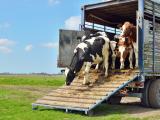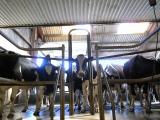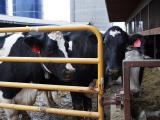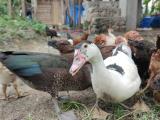Jan 10, 2005 (CIDRAP News) – Tests in Turkey have confirmed another human case of avian flu, bringing the country's reported total to 15, while Chinese authorities reported China's eighth case, the World Health Organization (WHO) said today.
The WHO has officially recognized only four cases so far in Turkey, following their confirmation by outside reference laboratories, but the agency said yesterday the quality of testing at Turkey's national flu center in Ankara is high.
The latest case is in a 37-year-old woman with a history of exposure to sick chickens, the WHO said. She lives in the central province of Sivas, the seventh province to report cases, the statement said.
In China, the latest case-patient is a 6-year-old boy from the southern province of Hunan, the WHO said. He became ill Dec 24 and is hospitalized in stable condition.
Initial investigation suggested that the boy became infected through exposure to sick or dying poultry in his family's flock, though no poultry outbreaks have been officially reported in the area, the WHO said.
Chinese officials also have reported the deaths of two previously reported case-patients, according to the WHO. They are a 10-year-old girl from the Guangxi region and a 35-year-old man from Jiangxi province. The cases were reported Dec 7 and 16, respectively.
China now has had eight confirmed cases, five of which were fatal, the WHO said. The latest case is the second in Hunan province; the other patient, reported in November, lived about 300 kilometers from the new patient.
All 15 of Turkey's cases have been confirmed by the government within just the past week. Two teenagers from eastern Turkey died last week.
Despite Turkey's rapidly rising case count, a WHO official in Turkey said the virus does not seem to be spreading from person to person, according to an Associated Press (AP) account.
"It seems to be clear that we are dealing with a situation similar to what we have seen in Asia, which means in practice a number of small sites, family clusters of disease involving many children and always with documented or reported contact with infected birds, typically backyard poultry," said Guenael Rodier, part of a WHO team in Turkey.
The 37-year-old woman is only the second adult among the Turkish cases so far, according to an Agence France-Presse (AFP) report. The rest are children and teenagers from several provinces who are being treated in Ankara, the northern city of Samsun, and the eastern city of Van, the story said..
Turkey's agriculture ministry said 306,000 birds have been culled in 15 of the country's 81 provinces, according to AFP.
In Japan today, the government said 77 healthy poultry workers have shown evidence of past infection with H5N2 avian flu, marking the first time that virus has been known to infect humans, according to an AFP report.
The workers in Ibaraki and Saitama prefectures, north of Tokyo, carried antibodies believed to result from an H5N2 infection, officials said. Japan has had several poultry outbreaks of H5N2, a milder strain than H5N1, in recent months.
An official said none of the workers have the virus now, so there is no risk they will spread it to others, according to the story. When the workers became infected was unknown.
The AFP report said five people in western Japan were infected with H5N1 avian flu in 2004, but none suffered more than a sore throat.
See also:
WHO update on Turkey
http://www.who.int/csr/don/2006_01_10a/en/index.html
WHO update on China
http://www.who.int/csr/don/2006_01_10/en/index.html



















